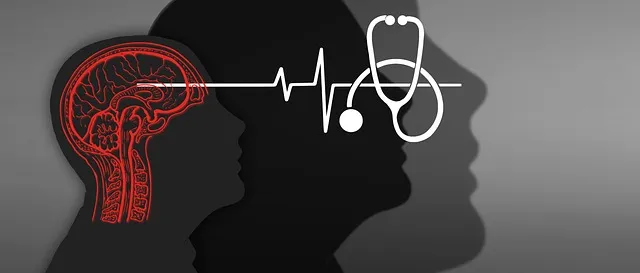Kaiser Permanente Longmont offers comprehensive mental wellness initiatives, utilizing technology and interactive learning to destigmatize mental health conversations. Their structured education courses blend theory with practical skills, covering emotional intelligence, coaching, resilience, and Mind Over Matter principles. Through role-playing, group discussions, and hands-on activities, participants gain tools for managing stress, anxiety, and other challenges. Success is evaluated through various measurement methods, demonstrating the program's effectiveness in fostering inclusive support for mental health issues, as evidenced by high participation rates, knowledge gains, and positive attitudes among Longmont community members.
At Kaiser Permanente Longmont, we’ve made significant strides in improving mental well-being through our innovative education program. This article delves into the design and structure of our successful initiative, focusing on breaking stigma and promoting awareness. We explore how interactive learning strategies engage participants, fostering open conversations about mental health. With a strong emphasis on measurement, we discuss evaluating the impact of our program, demonstrating Kaiser Permanente Longmont’s commitment to enhancing mental health literacy in our community.
- Understanding Mental Health: Breaking Stigma and Promoting Awareness at Kaiser Permanente Longmont
- Program Structure: Designing an Effective Mental Health Education Course
- Interactive Learning Strategies: Engaging Participants Through Kaiser Permanente's Approach
- Measuring Impact: Evaluating the Success of the Mental Health Education Program
Understanding Mental Health: Breaking Stigma and Promoting Awareness at Kaiser Permanente Longmont

At Kaiser Permanente Longmont, we believe that understanding mental health is the first step towards breaking down stigma and fostering a culture of mental wellness. Our commitment to this cause is evident in our comprehensive Kaiser Permanente mental health number Longmont initiatives aimed at empowering individuals and communities. We recognize that mental health is not just the absence of illness but a state of well-being where every individual realizes their own potential, can cope with normal stresses of life, can work productively and fruitfully, and is able to make a contribution to their community.
To achieve this, we offer a multi-faceted approach that includes self-care practices tailored for diverse populations, mood management workshops, and the Mental Wellness Podcast Series Production. Our programs are designed to be accessible and engaging, leveraging technology to reach a broader audience. By combining education with support, we aim to create an environment where conversations about mental health are normalized, and individuals feel equipped to prioritize their mental wellness in their daily lives.
Program Structure: Designing an Effective Mental Health Education Course

Designing an effective mental health education course involves careful structuring to ensure comprehensive coverage and engaging delivery. A well-rounded program should include a blend of theoretical knowledge, practical skills, and interactive exercises tailored to the target audience. At Kaiser Permanente Longmont, for instance, mental health education courses have been developed with a focus on both individual growth and community support.
The curriculum often begins by establishing a foundation in emotional intelligence, teaching participants how to recognize and manage their emotions effectively. This sets the stage for understanding mental wellness coaching principles and developing strategies to foster resilience. Throughout the course, interactive workshops, group discussions, and real-life case studies help solidify learning outcomes. By integrating Mind Over Matter principles, these programs empower individuals with tools to navigate stress, anxiety, and other common mental health challenges.
Interactive Learning Strategies: Engaging Participants Through Kaiser Permanente's Approach

At Kaiser Permanente Longmont, we recognize that Mental health education is most effective when delivered through interactive learning strategies. Our programs engage participants by combining theoretical knowledge with practical exercises, ensuring a dynamic and immersive experience. We’ve found success in incorporating various techniques such as role-playing scenarios, group discussions, and hands-on activities to explore concepts like Mindfulness Meditation and Communication Strategies.
These interactive methods not only foster active participation but also encourage peer learning. For instance, our workshops on building confidence often involve breakout sessions where individuals practice assertiveness skills and receive immediate feedback from their peers. This approach aligns with Kaiser Permanente’s commitment to holistic well-being, ultimately empowering participants with valuable tools for managing mental health challenges.
Measuring Impact: Evaluating the Success of the Mental Health Education Program

Evaluating the success of a mental health education program is paramount to understanding its impact and identifying areas for improvement. This process involves assessing both short-term and long-term outcomes, as well as the overall effectiveness in reducing mental illness stigma and promoting coping skills development. By utilizing various measurement tools and techniques, such as pre-post tests, participant feedback, and qualitative interviews, programs can gather valuable insights into how individuals are benefiting from the education they receive.
For instance, at Kaiser Permanente Longmont, the mental health education program has been designed to facilitate emotional healing processes and mitigate stigma through interactive workshops and personalized support. By tracking participation rates, knowledge gains, and changes in attitudes towards mental illness, the organization can demonstrate the program’s success in fostering a more inclusive and supportive environment for those navigating mental health challenges. This data-driven approach ensures that resources are allocated effectively and that programs continue to evolve based on measured outcomes.
Kaiser Permanente’s mental health education program in Longmont showcases an innovative approach to breaking down stigma and enhancing overall well-being. By combining structured learning, interactive strategies, and meaningful evaluation, this program effectively equips individuals with the knowledge and skills to navigate their mental health journeys. With a proven track record of success, Kaiser Permanente’s model can serve as a blueprint for organizations worldwide, fostering healthier communities through accessible and impactful mental health education. The initiative underscores the importance of comprehensive mental wellness programs, particularly in today’s digital era where awareness and support are more crucial than ever before.






